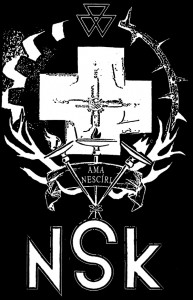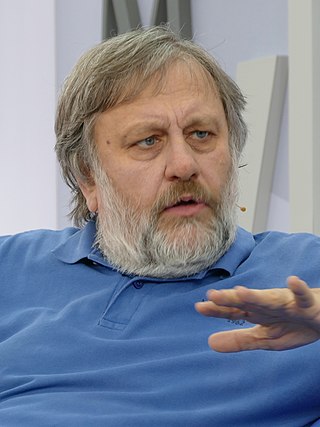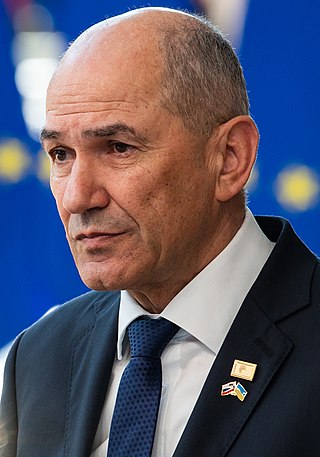Related Research Articles

Slovenia officially the Republic of Slovenia is a country in Central Europe. It borders Italy to the west, Austria to the north, Hungary to the northeast, Croatia to the south and southeast, and a short coastline within the Adriatic Sea to the southwest, which is part of the Mediterranean sea. Slovenia is mostly mountainous and forested, covers 20,271 square kilometres (7,827 sq mi), and has a population of approximately 2.1 million. Slovene is the official language. Slovenia has a predominantly temperate continental climate, with the exception of the Slovene Littoral and the Julian Alps. Ljubljana, the capital and largest city of Slovenia, is geographically situated near the centre of the country. Other larger urban centers are Maribor, Kranj, Celje and Koper.

Yugoslavia was a country in Southeast and Central Europe that existed from 1918 to 1992. It came into existence following World War I, under the name of the Kingdom of Serbs, Croats and Slovenes from the merger of the Kingdom of Serbia with the provisional State of Slovenes, Croats and Serbs, and constituted the first union of South Slavic peoples as a sovereign state, following centuries of foreign rule over the region under the Ottoman Empire and the Habsburg monarchy. Peter I of Serbia was its first sovereign. The kingdom gained international recognition on 13 July 1922 at the Conference of Ambassadors in Paris. The official name of the state was changed to Kingdom of Yugoslavia on 3 October 1929.

Neue Slowenische Kunst is a political art collective that formed in Slovenia in 1984, when the Socialist Republic of Slovenia was part of Socialist Federal Republic of Yugoslavia. NSK's name was chosen to reflect the theme in its works of the complicated relationship Slovenes have had with Germans. The name of NSK's music wing, Laibach, is also the German name of the Slovene capital Ljubljana. The name created controversy because some felt it evoked memories of the Nazi annexation of Slovenia during the Second World War. It also refers to Slovenia's previous seven centuries as part of the Habsburg monarchy.

Janez Drnovšek was a Slovenian liberal politician, President of the Presidency of Yugoslavia (1989–1990), Prime Minister of Slovenia and President of Slovenia (2002–2007).

Slavoj Žižek is a Slovenian philosopher, cultural theorist and public intellectual.

The Slovenes, also known as Slovenians, are a South Slavic ethnic group native to Slovenia, and adjacent regions in Italy, Austria and Hungary. Slovenes share a common ancestry, culture, history and speak Slovene as their native language. According to ethnic classification based on language, they are closely related to other South Slavic ethnic groups, as well as more distantly to West Slavs.
Delo is a national daily newspaper in Slovenia. For more than 60 years, Delo has been involved in active co-creation of the Slovenian public space. It covers politics, economics, sports, culture and social events in Slovene. In addition to Slovenia, the paper is available in several Croatian cities and in Belgrade, Serbia. It is based in Ljubljana.

The Slovenian Democratic Party, formerly the Social Democratic Party of Slovenia, is a conservative parliamentary party; it is also one of the largest parties in Slovenia, with approximately 30,000 reported members in 2013.

New Slovenia – Christian Democrats is a Christian democratic and conservative political party in Slovenia. Since 2018, it is led by Matej Tonin. The party was formed on 4 August 2000 following a split in the unified Slovenian People's Party and Slovene Christian Democrats (SLS+SKD). NSi is a member of the European People's Party (EPP) and in the European Parliament its MEP Ljudmila Novak sits with the European People's Party Group.

The Social Democrats is a centre-left and pro-European social-democratic political party in Slovenia led by Matjaž Han. From 1993 until 2005, the party was known as the United List of Social Democrats. It is the successor of the League of Communists of Slovenia. As of 2022, the party is a member of a three-party coalition government with Robert Golob's Freedom Movement alongside The Left, as well as a full member of the Party of European Socialists and Progressive Alliance.

Ivan Janša, baptized and best known as Janez Janša, is a Slovenian politician who served three times as a prime minister of Slovenia, a position he had held from 2004 to 2008, from 2012 to 2013, and from 2020 to 2022. Since 1993, Janša has led the Slovenian Democratic Party, which has emerged as the pre-eminent Slovenian conservative party. Janša lost his fourth bid for prime minister in April 2022, his party defeated by the Freedom Movement party.

Slovene Americans or Slovenian Americans are Americans of full or partial Slovene or Slovenian ancestry. Slovenes mostly immigrated to America during the Slovene mass emigration period from the 1880s to World War I.

After a period of political and economic crisis in the 1980s, the constituent republics of the Socialist Federal Republic of Yugoslavia split apart, but the unresolved issues caused a series of inter-ethnic Yugoslav Wars. The wars primarily affected Bosnia and Herzegovina, neighbouring parts of Croatia and, some years later, Kosovo.

The Slovenian Catholic Church, or Catholic Church in Slovenia is part of the worldwide Catholic Church, under the spiritual leadership of the Pope in Rome. The 2018 Eurobarometer data shows 73.4% of Slovenian population identifying as Catholic that fell to 72.1% in the 2019 Eurobarometer survey. According to the Catholic Church data, the Catholic population fell from 78.04% in 2009 to 72.11% in 2019.

The Slovenian Parliament is the informal designation of the general representative body of the Slovenian nation and the legislative body of the Republic of Slovenia.

Litostroj is a Slovenian heavy machinery manufacturer based in Ljubljana. Its products include mainly water turbines for hydroelectric powerplants. Most of the production is exported. It provided around 8000 MW of installed power worldwide. Around 150 of them are pumped storage. It has also designed around 1200 large cranes. They also manufacture forging and pressing machines.
Mladina is a Slovenian weekly left-wing political and current affairs magazine. Since the 1920s, when it was first published, it has become a voice of protest against those in power. Today, Mladina's weekly issues are distributed throughout the country. Mladina is considered one of the most influential political magazines in Slovenia.

Slobodan Milošević was a Yugoslav and Serbian politician who was the President of Serbia between 1989–1997 and President of the Federal Republic of Yugoslavia from 1997 until his оverthrow in 2000. Milošević played a major role in the Yugoslav Wars and became the first sitting head of state charged with war crimes.

Slovenia–Turkey relations are the foreign relations between Slovenia and Turkey. Slovenia has an embassy in Ankara. Turkey has an embassy in Ljubljana. Both countries are members of the NATO. Organization for Security and Co-operation in Europe and Council of Europe. Slovenia is a member of the EU, Turkey is EU candidate. And Slovenia is with Montenegro is Sectoral dialogue partner countries of the Organization of the Black Sea Economic Cooperation.
References
- 1 2 3 Cox, John K. 2005. Slovenia: Evolving Loyalties. New York: Routledge, p. 43.
- ↑ Benderly, Jill, & Evan Kraft. 1994. Independent Slovenia: Origins, Movements, Prospects. New York: St. Martin's Press, p. 18.
- ↑ Gow, James, & Cathie Carmichael. 2000. Slovenia and the Slovenes: A Small State and the New Europe. London: C. Hurst & Co., p. 47.